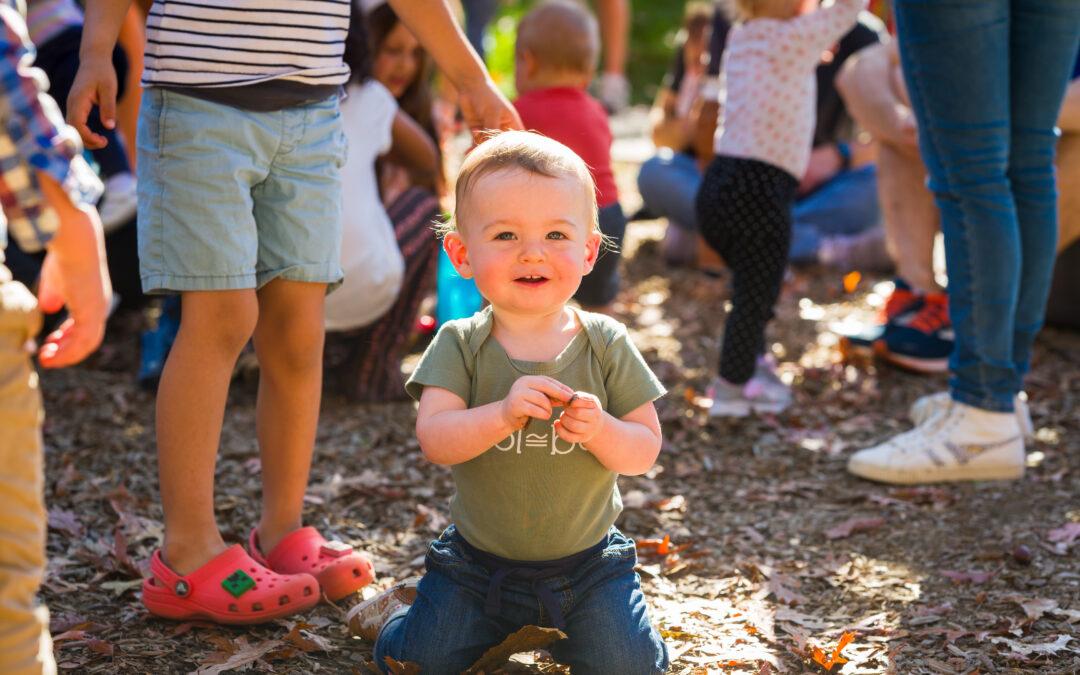“Mental health begins to develop in early childhood and is part of everyone’s lived experience.”
What You’ll Learn
- What is mental health and when does it begin?
- How do young children experience mental health?
- How can I support my child’s mental health?
Myth: children don’t experience mental health problems.
Myth: children are too young to understand mental health.
Our mental health begins to develop before we are born and is influenced by our physical, psychological, social, and cultural contexts. Children are not passive participants in their development—mental health is part of their lived experience. Acknowledging and understanding early childhood mental health is the first step to ensuring children receive the support they deserve and to positively influence the trajectory of their mental health.
Mental Health vs. Mental Illness
Before we proceed, it is important to note the difference between mental health and mental illness. Our mental health is at the center of our social-emotional health and well-being; it refers to our ability to form relationships, experience and manage a full range of emotions, and explore and learn within our environment. Our mental health impacts how we think, act, and feel about ourselves and others. A mental illness is a health condition involving significant changes in one’s emotions, thoughts, or behaviors. For young children in particular, a mental illness is identified when their behavior or emotions consistently interfere with their academic performance, social development, and health.
One’s mental health is not the absence of a mental illness and can be positively or negatively influenced by factors including genetics, relationships, community, environment, societal norms and beliefs, and experiences of trauma or stress.
Mental Health Begins in Early Childhood
There are various myths surrounding early childhood mental health, but the truth is that mental health begins to develop in early childhood and is part of everyone’s lived experience. Here are the facts for children living in the U.S.:
- 80% of chronic mental health disorders begin in childhood.
- 10-16% of young children experience mental health conditions – 22% of young children in poverty.
- 20% of children aged 2-8 years have a diagnosed mental, behavioral, or developmental disorder.
- 16% of children under 6 years have significant mental health problems that require clinical care.
Mental health is the foundation for future health and success but if left ignored, children will continue to face an increased risk of mental health problems. As a community, we must validate the experiences of young children and provide positive childhood experiences and other protective factors that support their mental health.
Supporting Children’s Mental Health
We can support early childhood mental health through intentional acts of promotion, prevention, and treatment. Parents and caregivers, here’s what you can try at home:
Develop a nurturing and responsive relationship
- Speak to your child in a warm, positive, calm, and supportive manner
- Actively listen and show interest in what your child says
- Respond to your child’s comments or ideas by asking questions
- Follow your child’s lead and engage in child-directed play
- Recognize your child’s efforts
Create a safe and predictable environment
- Set clear boundaries and expectations
- Model positive behaviors
- Organize your child’s space in a way that is inviting and accessible
- Offer choices frequently
- Establish consistent routines
Practice expressing and regulating emotions
- Respond to your child’s emotions without judgment
- Model a range of emotions and your skills to regulate
- Share words to describe different emotions
- Read stories about feelings and encourage multiple expressions of emotions
- Regularly practice strategies to regulate emotions
Seek guidance or support from your healthcare professional or a mental health consultant
- Identify and share your concerns for your child
- Gather information from other trusted sources in your child’s life
- Collaborate with a professional to identify a support plan
- Advocate for your family’s and child’s needs
Empowering Takeaways
- Mental health begins in early childhood—acknowledging and understanding this experience allows us to make better decisions
- Our mental health is shaped by our experiences and the contexts in which we live
- Promotion, prevention, and treatment are how we support positive mental health development
Be vibrant and keep thriving!
This article was last reviewed or updated on November 10, 2023.
References
Bethell, C., Jones, J., Gombojav, N., Linkenbach, J., & Sege, R. (2019). Positive childhood experiences and adult mental and relational health in a statewide sample. JAMA Pediatrics, 173(11). doi: 10.1001/jamapediatrics.2019.3007
Centers for Disease Control and Prevention. (2023). What is children’s mental health? https://www.cdc.gov/childrensmentalhealth/basics.html
Center on the Developing Child. (n.d.). Early childhood mental health. https://developingchild.harvard.edu/science/deep-dives/mental-health/
Children’s Behavioral Health Initiative. (n.d.). Infant and early childhood mental health resources and services: A guide for early education and care professionals. https://www.mass.gov/media/7451/download
Children’s Mental Health Campaign. (2023). https://www.childrensmentalhealthcampaign.org/
Gleason, M. (2023). Mental health in infants and young children: Pediatric mental health minute series. American Academy of Pediatrics. https://www.aap.org/en/patient-care/mental-health-minute/mental-health-in-infants-and-young-children/
Public Health Institute of Western Massachusetts. (2023, November 5). Taking action to support our youths’ mental health: Issue brief. https://www.mamh.org/assets/files/Youth_Mental_Health_Roadmap_for_WM_Brief_Final_2023-11-1_sm.pdf
Summers, S. J. & Chazan-Cohen, R. (2011). Understanding Early Childhood Mental Health: A Practical Guide for Professionals. Brookes Publishing.
The U.S. Surgeon General’s Advisory. (2021). Protecting youth mental health. https://www.hhs.gov/sites/default/files/surgeon-general-youth-mental-health-advisory.pdf
Zero to Three. (2023). Infant and early childhood mental health. https://www.zerotothree.org/issue-areas/infant-and-early-childhood-mental-health/
Yazdani, N., Siedlecki, K., Cao, Z., & Cham, H. (2020, August). Longitudinal impact of sociocultural factors and parent beliefs on parent-teacher relationship strength. The Elementary School Journal, 121(1). https://doi.org/10.1086/709881



